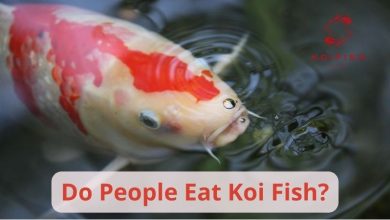Are Koi Fish Edible? Exploring Culinary Traditions and Practices
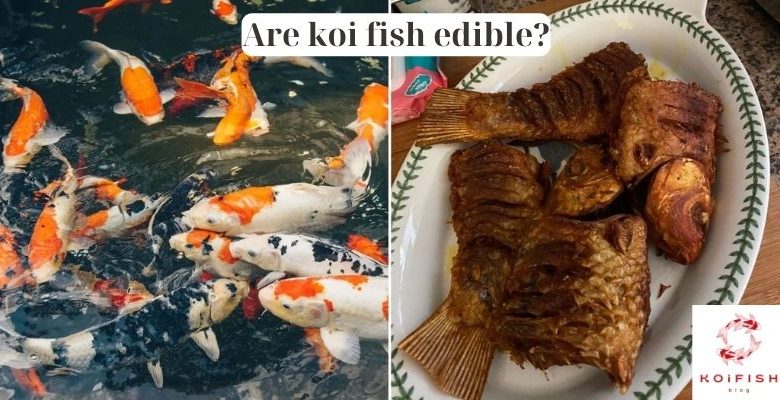
Koi fish, with their vibrant colors and graceful movements, have long been admired for their beauty and symbolism. Originating in East Asia, particularly Japan, these ornamental fish are prized for their decorative qualities and are often found in ponds and water gardens around the world. However, amidst their cultural significance and aesthetic appeal, a question arises: Are Koi Fish Edible? In this article, koifishblog.com delve into the culinary traditions and practices surrounding koi fish, exploring their historical context, nutritional value, health considerations, and cultural significance to shed light on whether they are suitable for consumption.
Are Koi Fish Edible?
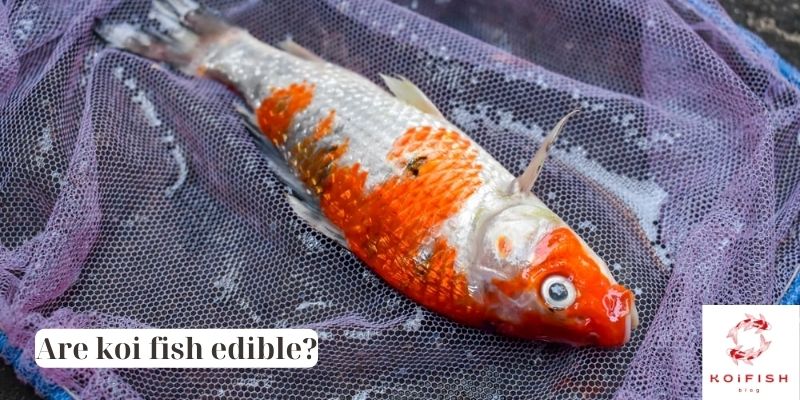
Koi fish hold a special place in the cultural heritage of East Asia, particularly in Japan, where they are revered for their beauty and symbolism. In Japanese culture, koi fish symbolize perseverance, strength, and good fortune. They are often associated with the concept of koi nobori, or “carp streamers,” which are colorful windsocks in the shape of koi fish flown during the Children’s Day festival. Additionally, koi fish feature prominently in traditional Japanese art, including paintings, prints, and ceramics, further highlighting their cultural significance.
Culinary Traditions
While koi fish are primarily known as ornamental pets in many parts of the world, there are historical and contemporary culinary traditions in East Asia where they are consumed as food. In certain regions of Japan and China, particularly in rural areas, koi fish have been considered a source of sustenance for centuries. However, it’s important to note that the consumption of koi fish is not widespread and is limited to specific cultural practices and traditions.
Nutritional Value
In terms of nutritional value, koi fish are similar to other freshwater fish species. They are a good source of protein and contain essential nutrients such as vitamins, minerals, and omega-3 fatty acids. However, the nutritional composition of koi fish may vary depending on factors such as diet, environment, and breeding practices. While they may offer health benefits when consumed, it’s essential to consider any potential health risks associated with consuming koi fish, particularly regarding contamination and parasites.
Health Considerations
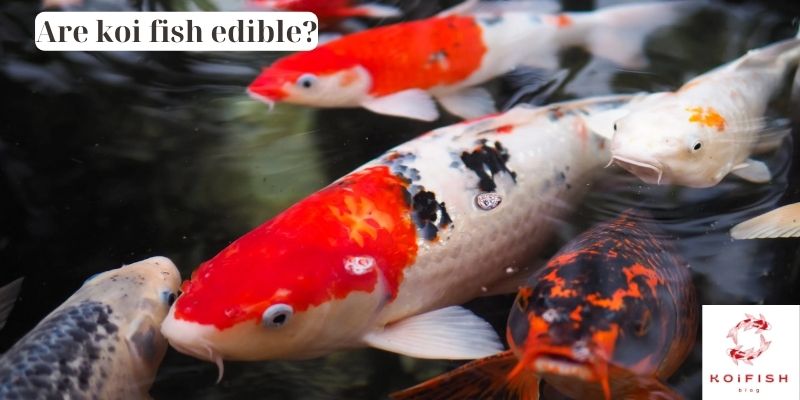
One of the primary concerns associated with Are Koi Fish Edible is the risk of parasites and environmental contaminants. Like other freshwater fish, koi fish may harbor parasites such as tapeworms, which can pose health risks to humans if not properly cooked. Additionally, koi fish living in polluted or contaminated water sources may accumulate toxins and heavy metals, which can be harmful when ingested. As such, it’s crucial to ensure that koi fish intended for consumption are sourced from clean and reputable sources and cooked thoroughly to eliminate any potential health risks.
Legal and Ethical Considerations
In many regions where koi fish are popular as ornamental pets, there are legal regulations and ethical considerations regarding their consumption. For example, in some countries, koi fish are protected under animal welfare laws, making it illegal to harm or kill them for food. Additionally, given their cultural significance and symbolic value, consuming koi fish may be considered taboo or disrespectful in certain cultural contexts. As such, it’s essential to respect cultural traditions and legal regulations when considering the consumption of koi fish.
Culinary Practices
In regions where koi fish are traditionally consumed, there are specific culinary practices and recipes that highlight their flavors and textures. In Japan, for example, koi fish may be prepared in traditional dishes such as nishikigoi nabe, a hot pot dish featuring koi fish simmered with vegetables and tofu. However, it’s important to note that these culinary practices are limited to specific regions and cultural traditions, and the consumption of koi fish is not common in most parts of the world.
Alternative Uses
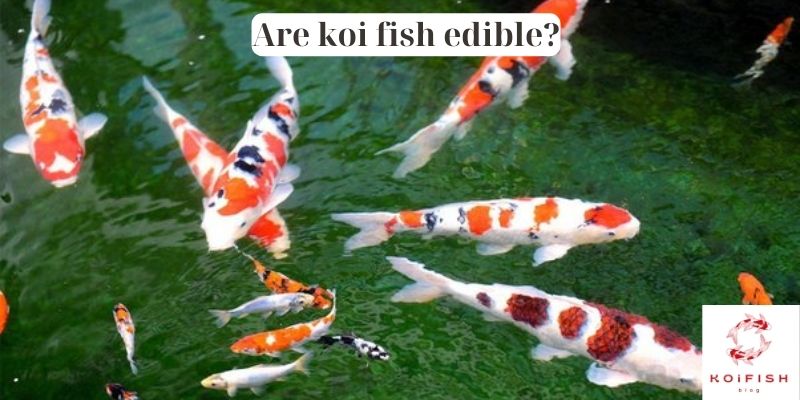
Beyond their potential as a food source, koi fish have alternative uses that contribute to their value and significance. For example, koi fish are commonly used in aquaponics systems, where they help to maintain water quality and support the growth of plants. Additionally, koi fish are valued for their role in decorative pond features, adding beauty and tranquility to gardens and landscapes around the world. These alternative uses highlight the multifaceted nature of koi fish and their importance beyond culinary traditions.
Expert Opinions
While opinions on Are Koi Fish Edible may vary, experts in culinary arts, aquaculture, and cultural studies can provide valuable insights into the topic. Chefs and culinary experts may offer perspectives on traditional cooking methods and recipes, while aquaculture specialists can provide information on the nutritional composition and health considerations of koi fish. Cultural historians and anthropologists may offer insights into the cultural significance and symbolism of koi fish and how these factors influence culinary traditions and practices.
Conclusion
In conclusion, the question of Are Koi Fish Edible is a complex and nuanced one that is deeply intertwined with cultural traditions, culinary practices, and health considerations. While koi fish are primarily known as ornamental pets in many parts of the world, there are historical and cultural contexts where they have been consumed as food. However, the consumption of koi fish is not widespread, and there are significant health risks and ethical considerations associated with their consumption. Ultimately, whether or not koi fish are suitable for consumption depends on individual preferences, cultural traditions, and legal regulations. As such, it’s essential to approach the topic with respect for cultural diversity, ethical considerations, and informed decision-making.
Conclusion: So above is the Are Koi Fish Edible? Exploring Culinary Traditions and Practices article. Hopefully with this article you can help you in life, always follow and read our good articles on the website: koifishblog.com

